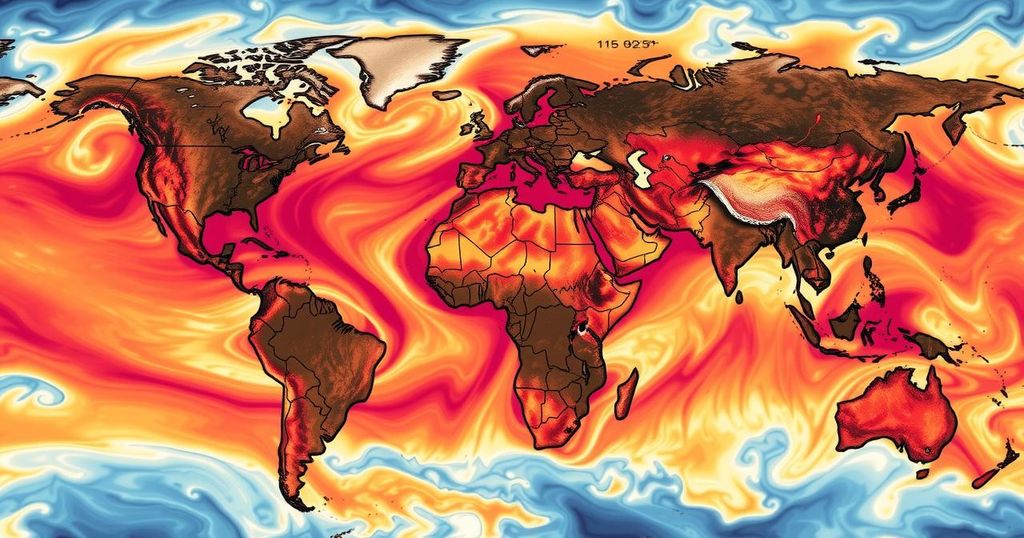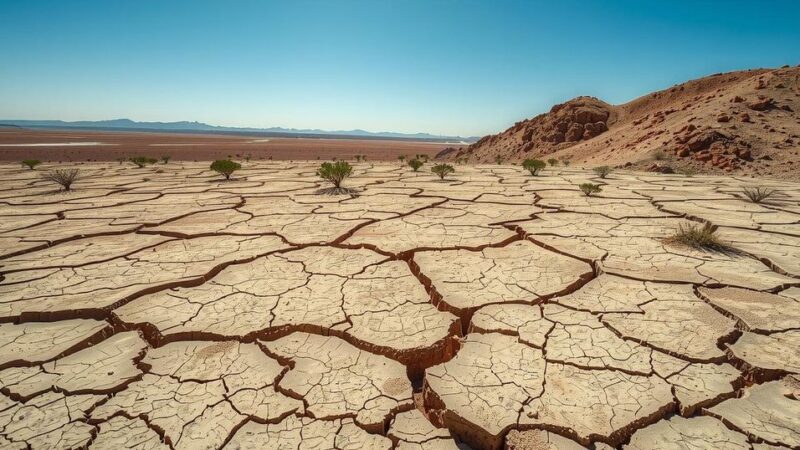In 2024, climate change caused an additional 41 days of hazardous heat globally, exacerbating extreme weather events and likely making it the hottest year recorded. Researchers linked many severe weather occurrences to human-induced climate change, emphasizing urgent action to address and mitigate further impacts.
In 2024, humanity experienced an alarming increase of 41 days of dangerous heat attributed to climate change, as reported by a group of scientists from World Weather Attribution and Climate Central. This year has been marked by unprecedented heat levels, likely making it the hottest year ever recorded, in addition to numerous extreme weather events impacting the global population. The lead researcher, Friederike Otto, emphasized that these findings highlight the devastating consequences of climate change on weather patterns, leading to heightened incidences of heatwaves, droughts, and severe storms worldwide.
Regions across the globe, particularly Northern California, Death Valley, and parts of Europe and Asia, faced crippling heat, with local authorities forced to react due to soaring temperatures. Communities suffered not only in higher temperatures but also in heightened mortality and morbidity, often without accurate reporting of heat-related deaths. The scientists analyzed temperatures to compare the current state of climate with a hypothetical pre-climate change scenario, revealing that many regions experienced extreme heat for over 150 days this year alone.
The research has shown a concerning link between extreme weather events and climate change, with 26 out of 29 scrutinized events directly tied to these climatic shifts. Although the El Niño phenomenon contributed to some of the extreme weather, the overarching influence of climate change remained significant. As the planet edges closer to surpassing the critical 1.5 degrees Celsius increase warned against in the Paris Agreement, it is evident that urgent measures are necessary to mitigate further impacts.
The topic of climate change remains at the forefront of global discourse, particularly due to its extensive effects on weather systems and natural disasters. With human-caused emissions leading to significant increases in global temperatures, extreme weather patterns have become more common. Understanding the impact of anthropogenic climate change is crucial for developing strategies to adapt and mitigate its effects. The findings reported by World Weather Attribution and Climate Central illustrate the need for intensified action to combat climate-related issues, especially as they pertain to vulnerable populations and developing countries.
The findings of the recent analysis underscore the severe and growing impact of climate change on global temperatures and extreme weather events. With the increase of dangerous heat days, the study calls attention to the urgent need for international action and preparedness to mitigate the adverse effects on vulnerable populations. Research indicates that while extreme weather will become more frequent, appropriate measures can be implemented to alleviate its impacts and protect communities worldwide.
Original Source: www.detroitnews.com






